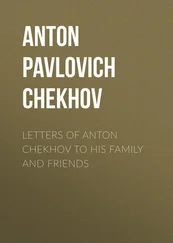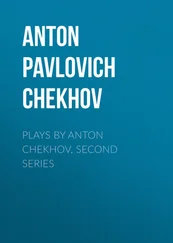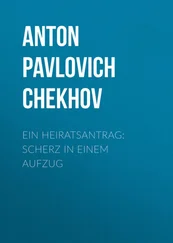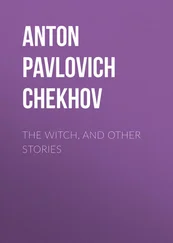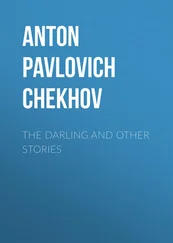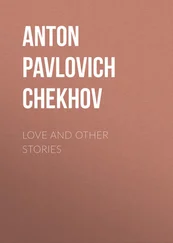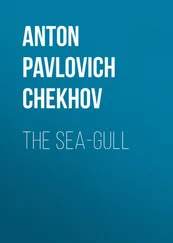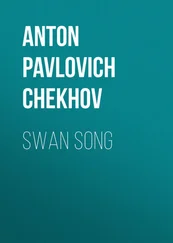Donald Rayfield - Anton Chekhov. A life
Здесь есть возможность читать онлайн «Donald Rayfield - Anton Chekhov. A life» весь текст электронной книги совершенно бесплатно (целиком полную версию без сокращений). В некоторых случаях можно слушать аудио, скачать через торрент в формате fb2 и присутствует краткое содержание. Жанр: Биографии и Мемуары, на английском языке. Описание произведения, (предисловие) а так же отзывы посетителей доступны на портале библиотеки ЛибКат.
- Название:Anton Chekhov. A life
- Автор:
- Жанр:
- Год:неизвестен
- ISBN:нет данных
- Рейтинг книги:5 / 5. Голосов: 1
-
Избранное:Добавить в избранное
- Отзывы:
-
Ваша оценка:
- 100
- 1
- 2
- 3
- 4
- 5
Anton Chekhov. A life: краткое содержание, описание и аннотация
Предлагаем к чтению аннотацию, описание, краткое содержание или предисловие (зависит от того, что написал сам автор книги «Anton Chekhov. A life»). Если вы не нашли необходимую информацию о книге — напишите в комментариях, мы постараемся отыскать её.
Anton Chekhov. A life — читать онлайн бесплатно полную книгу (весь текст) целиком
Ниже представлен текст книги, разбитый по страницам. Система сохранения места последней прочитанной страницы, позволяет с удобством читать онлайн бесплатно книгу «Anton Chekhov. A life», без необходимости каждый раз заново искать на чём Вы остановились. Поставьте закладку, и сможете в любой момент перейти на страницу, на которой закончили чтение.
Интервал:
Закладка:
The school year ended: Pavel decided to demonstrate his sons' command of Greek to his customers. Despite stickers for 'diligence' and 'exquisite work' which Voutzinas awarded his pupils, neither Kolia nor Anton had more than the alphabet. In the row that ensued, the boys, not Voutzinas, were punished. In August 1868 they were enrolled into the gimnazia, Anton entering the preparatory class.
Taganrog school has been portrayed both as the prototype demesne of Chekhov's degraded fictional schoolteachers and as the Eton of the Pontus Euxine. It was hell and heaven - like a good English 'public' school, minus sport, sodomy and the cane. During Anton's eleven years there it flourished. A survey of its teachers and its pupils shows it evolving into a hotbed of talent. School formed Anton Chekhov as strongly as home, and liberated him from home.
In September 1809 the city's leading citizens had founded a gimnazia for their city. In 1843 the school was moved to a light and airy two-storey classical building, situated at Taganrog's highest point. It began to produce famous alumni - for instance, the poet Shcherbina, translator of Homer into Russian. When the era of reforms began in 1856, the school entered two decades of turbulence. The expansion of cities in southern Russia led to a turnover of staff; the heady atmosphere of Alexander II's reign brought in radicals who conflicted with authority.
4
15
1ËÒ1Ï Ê 1(1 I II I MAN
In iH6$, the headmaster was sacked and wandered Taganrog as a mad tramp. The new head, Parunov, gave him a burial in 1865. In 1867 the Minister for Education, Count Dimitri Tolstoy, visited the school, to make it an example of a new conservative, classical gimnazia: dubious subjects were replaced with double and compulsory Greek and Latin; Russian literature, as a ferment of rebellion, was severely restricted. Subversive teachers were squeezed out. Country pupils who boarded with Taganrog families found their quarters under surveillance. Dmitri Tolstoy felt that the education system and the church should shadow the gendarmerie which he had established. His reforms made many teachers into policemen and much teaching into parrot-learning, but created a framework within which canny teachers and able pupils flourished. The school was an avenue for Jews, merchants, petit-bourgeoisie, sons of priests into the new professional classes, the intelligentsia. They became doctors, lawyers, actors, writers - which worried a government, rightly afraid of under-employed intelligentsia as a force for revolution.
In a Russian gimnazia all pupils were treated as members of the gentry. The only discipline was detention in a whitewashed cell under the school's vaulted staircase. Physical punishment was forbidden: a teacher who struck a pupil would be dismissed. After the Voutzinas regime of thrashed palms and crucifixion, not to speak of the floggings in Pavel Chekhov's household, the preparatory class was paradise to Anton. He discovered that few fellow-pupils were beaten even at home. That quiet resistance to all authority, the core of Anton's adult personality, was fomented in the classroom. The gimnazia was a great leveller - upwards, rather than downwards. It gave pupils from poor, clerical, Jewish or merchant households the rights and aspirations of the ruling class. Some parents, however, could no longer afford the fees and uniform, and transferred their sons to technical school, to become tailors or carpenters. Efim Efimiev, who left school at 12 in 1872, eventually to become a watchmaker and fine joiner, recalls: We were considered people of plebeian origin… by the cheap cloth uniform… I took a lunch of a small piece of bread and dripping which I often shared with Anton, because he had no nourishment apart from bread, a baked potato and a gherkin.'1
1868-9
Pavel's fondness for the rod, exceptional even for the unenlightened merchant class, was an aspect of his personal cruelty. The younger children, especially Misha, were brought up in Moscow, where Pavel was restrained by the urbane prejudices of his landlords from exercising full paternal rights. Masha, the only surviving girl, was treated as a doll: she was remembered as the 'blushing Murochka' in her starched pink dress. The elder sons were thrashed mercilessly. While the Chekhovs' rich in-laws, the Loboda family, were notorious for flogging servants and children, Pavel's children envied Mitrofan's family, where the children were preached at, not flogged. Aleksandr was traumatized by floggings - both he and Kolia wetted their beds well into their teens. Efim Efimiev, Anton's schoolmate from 1869 to 1872, recalls: 'in the Chekhov household… as soon as his father appeared we went quiet and ran home. He had a heavy hand. He punished children for the most innocent naughtiness. Thrashings.' In the mature work 'Three Years', Chekhov gives a graphic account of a young intellectual alienated from his merchant background, with many details that tally with what we glean from Anton's correspondence about his own childhood anguish. My father began to 'teach' me, or, to put it simply, to beat me, when I was less than five years old. He mrashed me with a cane, he boxed my ears, he punched my head and every morning, as I woke up, I wondered, first of all, would I be beaten today? In his late twenties Anton recalled to Aleksandr: Tyranny and lies crippled our childhood so much that it makes me sick and afraid to remember. Remember the horror and revulsion we felt in those days when father would flare up because the soup was over-salted, or would curse mother for a fool. At the end of the century Aleksandr told his sister: It was a sheer Tatar Yoke, without a glimmer of light… I look back on my childhood with crushing anguish.16 The journalist Nikolai Ezhov's memoir of 1909 confirms the horror: After thrashing his children, Pavel Egorovich went to church and told the victims to sit and read so many pages of the psalter. Chekhov… told a fellow-writer: 'You know, my father thrashed me so much
[6 ?7
ÃÀ I III Ê III I II I MAN
when I was a child that 1 still cannot lor^ei it.' And the writer's voice quivered. The teacher of Religious Knowledge at the school was Father Fiodor Pokrovsky, then in his early thirties. He preferred to visit Mitrofan Chekhov's house rather than Pavel's: in Mitrofan's family the hospitality was not punctuated by children being beaten or by Pavel's ranting. Pokrovsky misjudged the Chekhov boys, telling Evgenia: 'Something may come of your eldest [Aleksandr], but absolutely nothing can come of the two younger ones.' Pavel Filevsky, an ex-pupil and a fellow-teacher, described Pokrovsky as follows: 'Appearance, stance, musical voice, inventiveness, the gift of the gab - everything was attractive. But he was insincere… he had little erudition, his theology was "from the gut"."7 The children, however, saw Pokrovsky as their defender. He often overrode the headmaster Parunov at meetings. He argued with the deputy-head, the inspektor, a key figure in a Russian gimnazia, on behalf of pupils whose parents could not pay the fees (from ten to twenty roubles a year). He lobbied for the Chekhov brothers, too. In class he would forget the catechism and talk of his war exploits or of Goethe, Shakespeare and Pushkin. Chekhov kept in touch with the priest until he died in 1898, and Pokrovsky eagerly read what his ex-pupil wrote. Years later Mitrofan was to report to Pavel: 'Antosha told me in his letter that he owes the Priest not just his knowledge of scripture but literature, the ability to understand the living word and to clothe it in elegant form.'
The preparatory class of 1868-9 was taken by kindly men: the elderly but lively Swiss Montagnerouge, who had been the boarding housemaster, was affectionately known as Stakan (wineglass) Ivanych.
The Latin teacher, Vladimir Starov, left the deepest impression: a gentle, much liked man, he fell in love with the stepdaughter of his colleague Andrei Maltsev, Ariadna Cherets, a wanton beauty known as Rurochka. She married and ruined him. In the late 1880s, when the school's self-appointed secret policeman, a Czech called Urban, denounced him, Starov was removed to a remote school in the steppe: Ariadna abandoned him and eloped with an actor well-known all over Russia, Solovtsov, and began to act herself. Starov died of alcoholism in hospital. Not just Chekhov's stories ('Ariadna', 'My Life') but also the story 'My Marriage' by his geography teacher Fiodor Stulli, were
Читать дальшеИнтервал:
Закладка:
Похожие книги на «Anton Chekhov. A life»
Представляем Вашему вниманию похожие книги на «Anton Chekhov. A life» списком для выбора. Мы отобрали схожую по названию и смыслу литературу в надежде предоставить читателям больше вариантов отыскать новые, интересные, ещё непрочитанные произведения.
Обсуждение, отзывы о книге «Anton Chekhov. A life» и просто собственные мнения читателей. Оставьте ваши комментарии, напишите, что Вы думаете о произведении, его смысле или главных героях. Укажите что конкретно понравилось, а что нет, и почему Вы так считаете.

